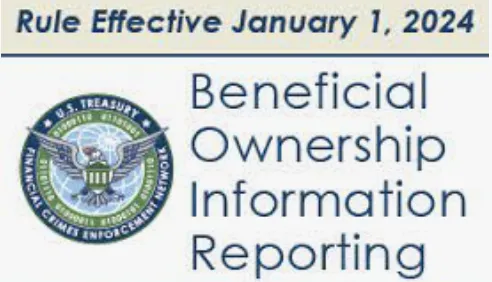Suppose you’re obligated to file Schedule R (Form 5471), Information Return of U.S. Persons with Respect to Certain Foreign Corporations. In that case, you may need to file Schedule R to report distributions from a foreign corporation. Whether or not you need to file Schedule R depends on your relationship with the foreign corporation. In this article, you’ll learn about Schedule R filing requirements and how to complete this U.S. tax form.
Key Takeaways
- Schedule R (Form 5471) reports basic information about distributions from foreign corporations.
- US persons who qualify as Category 4 and Category 5a filers must submit Schedule R with Form 5471.
- An income statement in the foreign corporation’s functional currency is required to file Schedule R.
- Schedule R, which is part of Form 5471, is due on the same date as your annual tax return.
Who Has to File Schedule R (Form 5471)?
Individuals required to complete Form 5471 fall into five categories: 1a, 1b, 1c, 2, 3, 4, 5a, 5b, and 5c. Each category has unique filing requirements based on the taxpayer’s relationship with the foreign corporation.
The following categories of taxpayers are required to file Schedule R:
- Category 1a Filer –This individual is part of the broad Category 1 filers but doesn’t specifically align with the nuanced definitions of Categories 1b or 1c. Essentially, if you don’t fall into the more specific categories below, you’re a Category 1a filer.
- Category 1b Filer – As an unrelated section 958(a) U.S. shareholder of a foreign-controlled section 965 SFC that’s predominantly managed outside of the United States, and assuming you’re not related to this corporation in a way that would influence your stake, you would be considered a Category 1b filer. This designation is particularly relevant for those holding a significant but independent interest in certain foreign entities, providing specific tax relief benefits akin to those available to certain Category 5 filers.
Unrelated section 958(a) U.S. shareholder: An individual with a considerable stake in a foreign corporation without having familial or insider relationships with the entity.
Foreign-controlled section 965 SFC: Refers to a foreign company that, under technical definitions, is considered foreign-controlled with substantial U.S. interest.
- Category 1c Filer – This category is earmarked for individuals who, due to their familial or business connections, are deemed to have an indirect interest in a foreign corporation, despite not directly owning shares. This allows for specific tax reliefs similar to those in Category 1b but tailored for those with relational rather than direct equity stakes.
Related constructive U.S. shareholder: A person considered an indirect shareholder through close associations or business ties.
- Category 2 Filer – U.S. citizens or residents who are officers or directors in a foreign corporation and hold a significant share or know another U.S. person who does fit into this category. Specifically, this includes those who have recently increased their stake in the foreign entity to a level of 10% ownership or more.
- Category 3 Filer – Individuals who acquire enough shares in a foreign corporation to own 10% or more of it, or increase their ownership to this level, belong to Category 3. It also includes those who become U.S. persons while holding a significant share, or who reduce their ownership below this threshold.
- Category 4 Filer – This category includes a U.S. person who had control over a foreign corporation during the foreign corporation’s annual accounting period. A person has control of a foreign corporation if the individual owns more than 50% of the total value of shares or more than 50% of the total voting power of all classes of stock.
- Category 5a Filer – In general, a Category 5 filer is a U.S. shareholder who owns stock in a controlled foreign corporation (CFC) at any time during the foreign corporation’s tax year ending with or within the U.S. shareholder’s tax year and who owned that stock on the last day in that year in which the foreign corporation was a CFC. Category 5a filer is a filer who is in Category 5 and does not fit into either Category 5b or 5c.
- Category 5b Filer – A Category 5b filer is an unrelated Section 958(a) U.S. shareholder of a foreign-controlled CFC. This Category 5 filer type carries out the relief for specific Category 5 filers mentioned in Rev. Proc. 2019-40, 2019-43 IRB 982, Section 8.02.
Unrelated section 958(a) U.S. shareholder – An unrelated section 958(a) U.S. shareholder with regard to a foreign-controlled CFC for the purposes of Category 5b is someone who:
- owns stock of a foreign-controlled CFC (as defined by Section 958(a)) and
- is unrelated to the foreign-controlled CFC (as defined by Section 954(d)(3)).
In other words, you are a Section 958(a) shareholder if you own stock directly or indirectly in a foreign-controlled CFC through a foreign entity (such as a foreign corporation or foreign partnership).
- Category 5c Filer. If an individual is a related constructive U.S. shareholder of a foreign-controlled CFC, they are considered a Category 5c filer. This Category 5 filer type carries out the relief for specific Category 5 filers mentioned in Rev. Proc. 2019-40, 2019-43 IRB 982, Section 8.03.
Related constructive U.S. shareholder – For the purposes of Category 5c, a U.S. shareholder of a foreign-controlled CFC who satisfies the following requirements is considered a related constructive U.S. shareholder:
- Does not hold stock in the foreign-controlled CFC, as defined by section 958(a); and
- Is related to the foreign-controlled CFC (based on Section 954(d)(3) principles). A person is a related person with respect to the CFC if:
- Such a person is an individual, corporation, partnership, estate, or trust that controls or is controlled by CFC.
- Such a person is a partnership, corporation, estate, or trust controlled by the same person or persons controlling the CFC. Control means directly or indirectly owning more than 50% of the total value of the stock or the total voting power of all classes of the corporation’s stock (or more than 50% of the beneficial interest of a partnership, trust, or estate).
What is Schedule R (Form 5471) Used For?
Schedule R is used to report basic information about foreign corporation’s distributions. This information is required by IRC Sections 245A, 959, and 986(c).
To complete Schedule R (Form 5471), you must provide a list of the distributions received during the tax year. Enter a description of the distribution in Column (a) and the date of the distribution in Column (b).
In Column (c), enter the amount of distribution in the foreign corporation’s functional currency. The distribution amount is generally the money paid to the shareholder plus the fair market value (FMV) of any property transferred to the shareholder. However, the following liabilities reduce the distribution amount (but not below zero):
- Any corporate liability the shareholder assumes in relation to the distribution.
- Any liability that the property is subject to immediately before and immediately after the distribution.
In Column (d), enter the E&P (earnings and profits) distribution in the foreign corporation’s functional currency. Corporate distributions to shareholders are typically regarded as profits and earnings distributions. You must report distributions from current and accumulated earnings and profits in this column. Do not report any part of a distribution not from earnings and profits in Column D of Schedule R.
What is the Due Date for Schedule R (Form 5471)?
Attach Schedule R to your income tax return (or, if applicable, your partnership or exempt organization return) with Form 5471, and file by the income tax return’s due date (including extensions).
For example, partnerships and S corps must file by the 15th day of the third month following the end of the tax year (you may extend this due date up to 6 months). The deadline for C-corps is the 15th day of the fourth month following the end of the tax year (you may extend this due date up to 6 months).
How is Schedule R (Form 5471) Filed?
File Schedule R with your organization’s federal income tax return, including Form 5471. Follow the IRS’s filing instructions based on your entity type and location to submit your return.
Where Do I Find the Newest Version of Schedule R?
You can download the latest version of Schedule R from the IRS website.
How Do I Find the Instructions for Schedule R?
The IRS website provides instructions and other information for Form 5471, including Schedule R.
What Documents are Required to File Schedule R?
To file Schedule R, you must provide an income statement in the foreign corporation’s functional currency and in accordance with U.S. Generally Accepted Accounting Principles (GAAP).
Can I Claim Deductions on Schedule R?
As an informational form for foreign corporations, Schedule R cannot be used to take deductions. However, when reporting distributions from foreign corporations, you can reduce the distribution amount based on the liabilities you assume, as stated above.
Tips for Filing Schedule R Correctly
As with any tax form, understanding your filing requirements is critical. Schedule R is required only for individuals who need to file Form 5471.
Taxpayers often confuse Form 5471 and Form 5472. Before attempting to complete Schedule R, confirm your Form 5471 filing obligation.
For those required to complete Schedule R, make sure to prepare your foreign corporation’s financial statements properly. Document all transactions, loans, and investments correctly to avoid IRS scrutiny.
Can I Get a Refund by Filing Schedule R?
Since Schedule R is used for informational purposes only, you cannot use it to claim a tax refund.
Can Cleer Tax Help Me File Schedule R?
Yes! Cleer Tax can help you determine if you must file Schedule R, Form 5471, and any related tax forms. From there, our expert accountants can help you prepare your U.S. tax return quickly and accurately, giving you complete peace of mind. Sign up now to get the tax help you deserve!
Cleer provides Corporate Income Tax Packages encompassing federal and state income tax filings for a hassle-free experience. We also offer all-inclusive bookkeeping packages, which include your monthly statements plus your federal and state tax returns. If you need help getting up to date on your books, we also offer support for companies that have fallen behind on their bookkeeping with our bookkeeping catch-up package.
If you need any help reducing your tax liability, schedule a consultation, or feel free to contact us.






